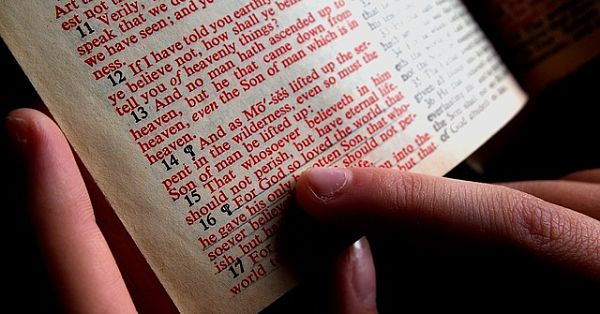 Rejoice!
Rejoice!
One great good of Christmas is doubt that leads to wondering.
At the end of the Christmas story, the tough Jewish woman that was the Mother of God had seen it all and heard everything:
19 But Mary treasured all these words and pondered them in her heart.
Where is the doubt? The Mother of God is treasuring these words . . . it is not the words (in this case) she is doubting. She has experienced too much for that to be plausible. Doubt is the prelude to pondering and Mary does a great deal of thinking about what she has seen and heard. What does it mean? What will happen? Who is her baby?
If she had been certain of what it all meant, there would have been no room for thinking or questioning. A doubt, or wondering, is the prelude to thinking and thinking requires questioning. There is an odd notion that accepting some truth stops doubt. In fact, if the truth is not one someone likes, they will call that truth a “dogma” and preen that they are in favor of free thought. Yet accepting the statement “free thought is good” is to accept it as a (provisional) truth, a dogma, and then (rightly) using that dogma to question other alleged truths.
Everyone is in that situation. Experience may be real, the Words may be true, even divine, but figuring out what they mean led even God’s mother to ponder. This is why “God said it. That settles it.” is so misleading. If od said it (as Mary was in her rights to do) that issue was settled, but not the totality of what did God means. Any person in a relationship knows that hearing something and understanding that something are two different things! We must act modestly on what we think we know or have experienced and do decades of pondering!
This requires questioning what we have understood from our experience. (At times it will include questioning the experience itself!)
Wholesome doubt is the beginning of thought and left unchecked ends, in my experience in wonder. Let’s be plain: wondering, doubting, pondering may not turn out the same way in you as it does for me. People ponder and they come to different conclusions. Why? There are so many possible reason (including that I could be wrong) that there is no sense in picking one of them and assuming it to be true. Certainly we should not assume this difference is a result of his or her (that other guy or gal!) folly, or self-deception, or immorality.
How could we know this? A call to examination, to thought, has many outcomes (from atheism to weird fundamentalism) in people. That is not surprising. Give people free will and we can mess up almost anything! After all, if we assume we should “do to others what we have done to us,” we would think that could not go badly, yet we all know it does. Whether secular or religious, thinking on a truth is no guarantee we will not fall into foolish mistakes about that truth. Since that is true of me, I do engage in some Socratic arguments on occasion, but mostly ponder my own ideas and experiences.
Mary is, as usual, a good role model for thinking people: Better to ponder for ourselves and leave God to judge that other person! Mary pondered all the way to the Cross, most everyone else did not get it and when their assumptions were falsified, they stopped. Don’t stop pondering this side of Paradise!
Nothing is so good we cannot mess it up. Toxic doubt exists certainly, usually tied to a demand for certainty, or fear of having to do something. If I cannot be sure he is a good guy, then he cannot be my friend? If that is my attitude, I will be friendless! Too often we doubt most what we wish was not true and do not turn our wondering to the things that make us comfortable. The Mother of God had no such luxury. The story kept being different than what anybody expected. She kept pondering, acting on what she knew, and it got her to the Upper Room and the coming of the Holy Spirit!











